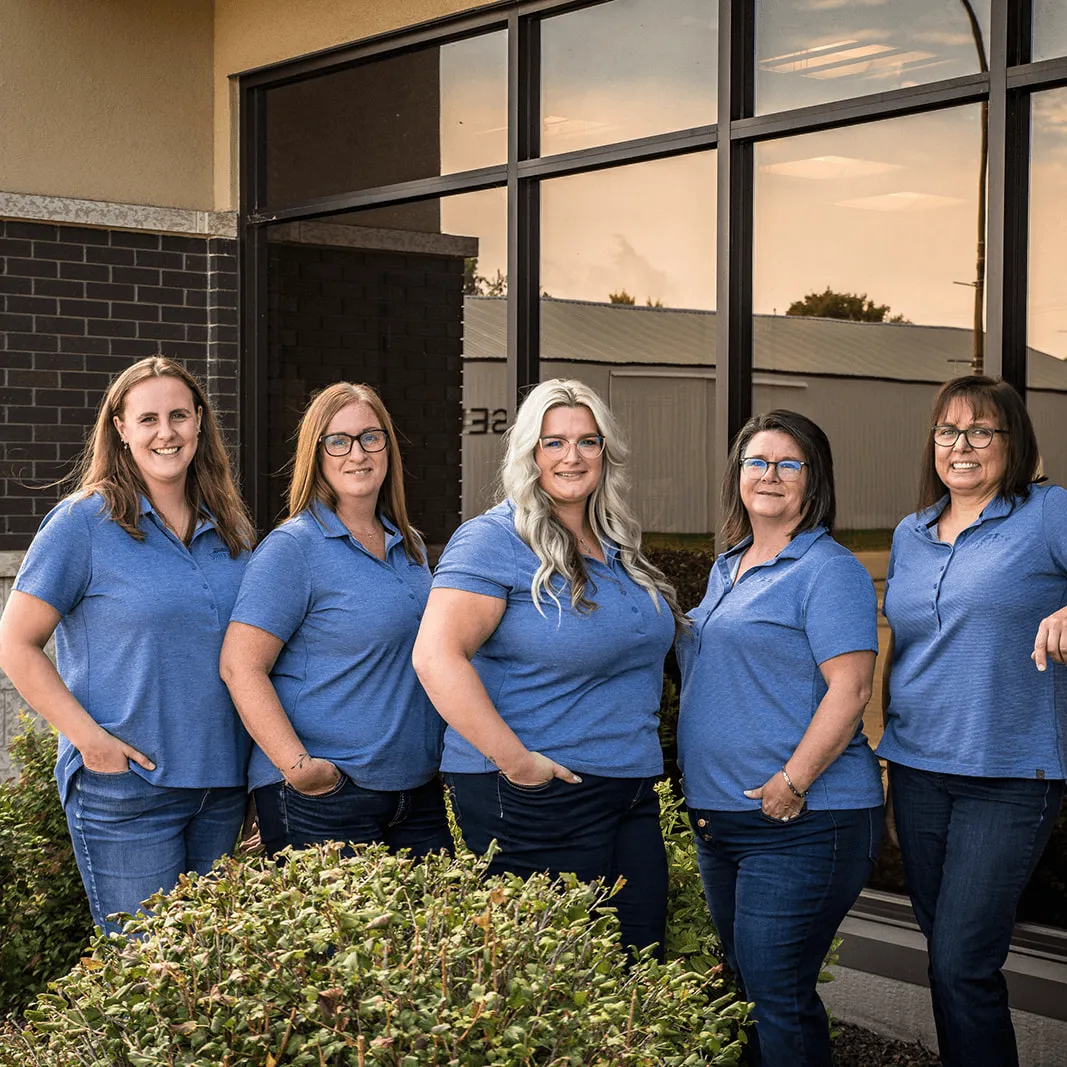First Home Savings Account (FHSA)
The FHSA is a registered plan designed to help individuals save for the purchase of their first home on a tax-free basis. The FHSA combines some of the features of a Registered Retirement Savings Plan (RRSP) and a Tax-Free Savings Account (TFSA). Like an RRSP, contributions will generally be tax-deductible. Like a tax-free savings account (TFSA), withdrawals to purchase a qualifying home will be non-taxable.

Meeting Your Investment & Planning Goals
Wealth management is an integrated and coordinated approach to managing all your financial needs, whether those needs are great or small, immediate or future.
By actively listening and asking questions to help discern precisely the products and services you need to achieve your goals, we can contribute to your wealth management plan.
Here are some of the services and products we offer:
.svg)
Estate Planning
Estate planning services
Financial Advisor
Get personal financial advice
Investing FAQ’s
Frequently asked questions about investing
Online Trading
Take the next step toward your trading goals.
LIRA
Safeguard your pension
RDSP
Start planning for long-term financial security.
RESP
Prepare for a brighter future.
RRIF
Relax and enjoy your retirement.

RRSP
The best time to start saving - is now.
Term Deposits
Term Deposits and Guaranteed Income Certificates (GICs)
TFSA
Flexibility, protection and Growth.
Need Expert Advice?
At times, personal circumstances require a more thorough analysis beyond our branches' services, products, and advice.
For those members seeking advice for more advanced strategic, succession, or transition planning and investments, we’ve aligned with a team of industry professionals, each of which brings a unique set of skills to the table.
Partnering with our wealth management team has been an enormous success, providing Sunrise members access to financial planning, insurance, and wealth management services. Together, we build on a foundation of trust to serve our members for generations to come.


Get Business Advice
Whatever stage your business is at, we’re here to help you achieve your potential, with free, trusted business and commercial banking advice.





.webp)
.svg)

.svg)
.svg)
Made-in-Manitoba Investment & Planning Services
Sunrise Credit Union is privileged to have earned the trust of our members while serving their families for generations through our legacy credit unions. Our staff work hard every day to build relationships, trust and confidence by providing innovative products, services and advice to meet your individual and corporate requirements. We do this by actively listening to your needs, taking a big-picture view of your financial circumstances and goals, and identifying personalized solutions.
Are you ready to experience the Sunrise Credit Union difference
Frequently Asked Questions Buying a House
Know more about FHSA
- Get tax benefits. Your FHSA contributions can reduce your taxable income.
- Grow your savings tax-free. Any investment income in your FHSA is non-taxable while it's in your account.
- Save for your first home, tax-free. Pay no taxes on your withdrawals when you use your FHSA towards the purchase of a qualifying home.
- Any Canadian resident that has reached the age of majority in your province or territory (18- years of age in Manitoba)
- You're an eligible first-time homebuyer who has yet to live in a home you, your spouse, or your common-law partner has owned in the current or past four calendar years
- The cap on annual contributions is $8,000 annually up to a $40,000 lifetime contribution limit.
- Contribute tax-free for up to 15 years.
- Individuals may claim an income tax deduction for FHSA contributions made in the calendar year or a previous year to the extent not previously deducted.
- Pay no taxes on any investment earnings.
- Carry forward a maximum of $8,000 in unused contribution room to the following year.
- Your contribution room will be tracked by the CRA and you can view your contribution room on your MyCRA account, or on your notice of assessment that you receive from the CRA.
- You can do a tax-free transfer of funds from an RRSP to your first home savings account, this would just be subject to annual and lifetime contribution limits.
- You're a Canadian resident and a first-time homebuyer at the withdrawal time.
- You have an agreement to buy or build a qualifying home.
- You intend to occupy the home as your principal residence within one year of acquiring the home.
- If no home is purchased, funds can be withdrawn but would be considered taxable income. You could also transfer the funds to an RRSP to remain tax sheltered.
- Your first home savings account must be closed once one of the following occurs:
- By December 31 of the 15th year after opening your FHSA
- By December 31 of the year the account holder turns 71 years old
- By December 31 of the year following the first qualifying withdrawal from the FHSA
We're Hiring at Sunrise
Are you ready to join our dynamic team and be a champion of change? Explore our job openings and apply today!
.webp)

Frequently Asked Questions Buying a House
Know more about Buying a House
- Once you have found a house you would like to buy, it’s time to make an offer to the seller. This is typically done through a real estate agent or a lawyer but can also be drafted yourself. Your offer must include:
- Your legal name, the name of the seller, and the address of the property
- The amount you’re offering to pay (the purchase price) and the amount of your deposit
- Any extra items you want included in the purchase such as window coverings
- The date you want to take possession
- A request for a current land survey, if applicable
- The date the offer expires
- Any other conditions that must be met before the contract is finalized. For example, financing approval or a satisfactory home inspection
- Once you have an accepted offer to purchase, contact your financial institution to confirm mortgage details if you’ve been pre-approved or to begin the financing approval process.
- A lawyer is required to purchase a house. A lawyer will:
- Obtain mortgage instructions from your financial institution
- Confirm property taxes are current
- Contact your insurance agent to confirm house insurance is in place
- Prepare purchase and mortgage documents and meet with you to sign them
- Obtain the purchase funds from you and your financial institution
- Send the purchase funds to the seller's lawyer
- Ensure the seller’s mortgage and any unwanted liens are removed from the title
- Register the transfer and mortgage documents at the Land Titles Office
- Closing costs vary depending on the price of the house and the requirements of your financial institution. Most house purchases involve the following closing costs:
- Legal fees
- Survey or title insurance fees
- Land transfer tax
- Land Titles Office fees
- Tax certificate fee
- Closing costs vary depending on the price of the house and the requirements of your financial institution. Most house purchases involve the following closing costs:
- Legal fees
- Survey or title insurance fees
- Land transfer tax
- Land Titles Office fees
- Tax certificate fee
- A survey, also known as a building location certificate, is a sketch of the property prepared by a licensed surveyor that details the location of all buildings on the property.
- A survey can confirm that the buildings and structures purchased are located within the property lines, and/or that it is free from encroachments by buildings or structures on adjoining properties.
- Instead of getting a new survey you can obtain title insurance. Title insurance is intended to cover you for any loss you suffer in the future as a result of not having obtained a new survey.
- Title Insurance is generally less expensive than a survey.
- Land transfer tax is collected by the government when transfers of land take place. It is paid for by the buyer when the transfer is sent to the Land Titles Office. Land transfer tax is included in the closing costs that the buyer pays to the lawyer typically at the time of signing documents.
- The amount of the tax is based on the fair market value of the property.
$1 - $30,000 = 0.00%
$30,001 - $90,000 = 0.50%
$90,001 - $150,000 = 1.00%
$150,001- $200,000 = 1.50%
$200,000 + = 2.00%
- Before the possession date, you should set up your utility accounts by contacting:
- Manitoba Hydro
- Municipal water department (if there is municipal water service)
- You should arrange your house insurance well in advance of the possession date, but the policy does not have to be in effect until the actual date of possession.
- Your financial institution will require confirmation that they have been listed as first loss payable on your house insurance policy.
- If more than one person is to be the owner, you should consider whether you wish to take title as “joint tenants” or as “tenants-in-common,” the main difference being what happens to the property upon death of either co-owner.
- As joint tenants, when one of you dies, the survivor is automatically entitled to ownership of the entire property.
- As tenants-in-common, the survivor shares the property with the deceased person’s heirs.
- A property tax adjustment is either added to the purchase price or deducted from the purchase price, depending on whether the possession date is before or after the property tax due date. This is calculated by and paid to the appropriate lawyer.
- If the possession date is before the date the taxes are due in your municipality, a tax adjustment is usually deducted from the purchase price. It is calculated as:
(Net taxes/365 days) x (# of days in the year before possession date)
For example: February 1 is the possession date
January 1 to February 1 is 31 days
Net taxes for year are $1,200.00
($1,200.00/365) x 31 = $101.92
- If the possession date is after the date the taxes are due in your municipality, a tax adjustment is usually added to the purchase price. The tax adjustment is calculated as:
(Net taxes/365 days) x (# of days in the year including and after possession date)
For example: December 1 is the possession date
December 1 to December 31 = 31 days
Net taxes for year are $1,200
($1,200.00/365) x 31 = $101.92



.svg)